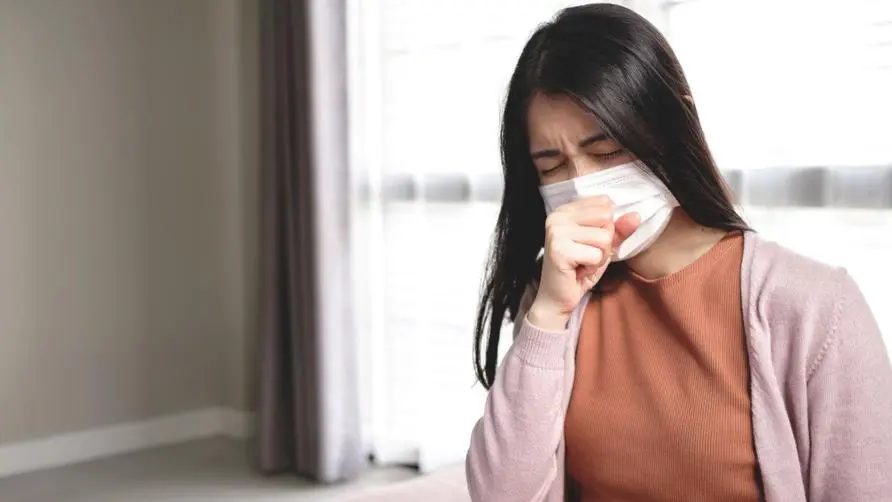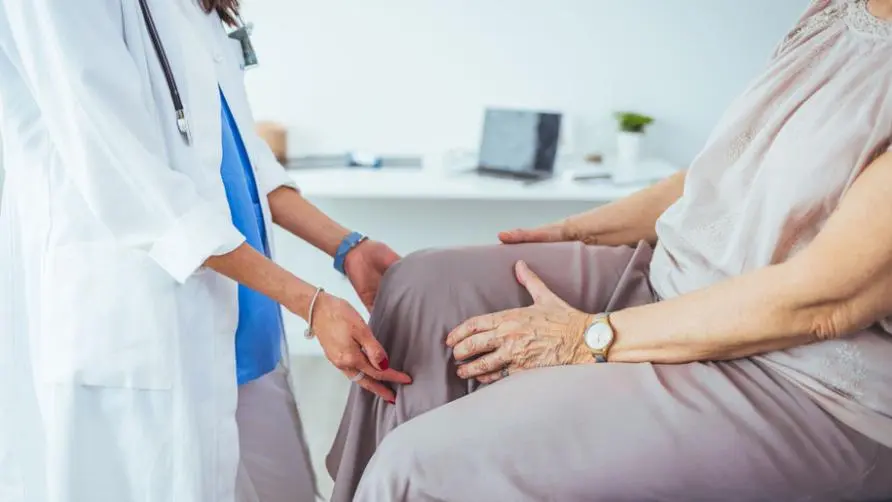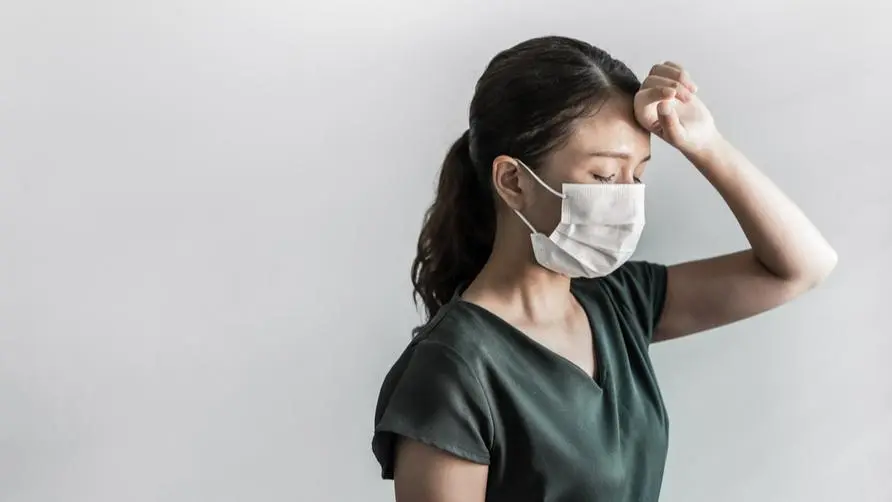Is the second diagnosis more serious? Which symptoms are most common? Who is at high risk for a second diagnosis? Medical reveals 6 key points of home care

Are the symptoms of the second diagnosis different from the first time? Are you fully vaccinated or will you get infected again?
Although the epidemic situation has declined, many people have been “diagnosed for the second time” recently. Dr. Lin Dailou, an otolaryngology specialist at Quanyu Otolaryngology Clinic, said that what symptoms are usually more common in a second diagnosis? The possible symptoms of a second diagnosis of COVID-19 depend on factors such as the severity of the previous infection, variations in the virus species involved, and the person’s immune response. Common symptoms of reinfection with COVID-19 may include: fever, cough, shortness of breath or difficulty breathing, fatigue, muscle or body aches, headache, loss of taste or smell, sore throat, congestion or runny nose, nausea or vomiting, and diarrhea.
Dr. Lin Dailou pointed out that at first glance, the symptoms of the second diagnosis are not much different from the symptoms of the first infection. During a first infection, when the immune system encounters a virus for the first time, it produces antibodies and immune cells that specifically target the virus and clear it from the body. If you are infected with the same virus again, you should generally respond quickly without any obvious or severe symptoms. However, if the virus has mutated into a new type that the immune system cannot easily distinguish, it will lead to a different immune response, the production of different antibodies and immune cells to fight the virus, and symptoms of varying severity.
Although reinfection with COVID-19 is possible, and most people who have been infected with COVID-19 have developed at least some level of immunity to the virus. However, the emergence of new variants of the virus means immunity may not provide complete protection. Vaccination remains an effective way to protect against COVID-19 and its variants.
However, secondary infection with COVID-19 can occur even if a person is fully vaccinated, although vaccinated people are generally at lower risk of severe illness and hospitalization. If you experience any symptoms of COVID-19, especially if you have a history of infection or are at higher risk for severe illness, it is recommended to seek medical assistance and further evaluation.
Is the second diagnosis less severe than the first? Which groups should take antiviral drugs?
Although the risk of a second diagnosis seems to be lower than that of the first diagnosis, many people still feel that their symptoms are more severe after the second diagnosis. Dr. Lin Dailou said that the symptoms of re-infection with COVID-19 will be related to his personal physical condition and the mutation type of the virus. Therefore, it is not easy to compare the risk of a second diagnosis with the first diagnosis, which one is more serious or dangerous. Some current relevant literature shows no significant difference in severity between repeat diagnoses and first diagnoses. However, another article pointed out that although patients diagnosed twice are uncommon, their severity seems to have increased slightly, and the proportion of COVID-19 symptoms is also higher.
Dr. Lin Dailou pointed out that the high-risk groups that are more likely to be affected by the second diagnosis are the same as the first diagnosis, mainly the elderly, people with underlying health conditions such as diabetes or heart disease, and those with weak immune systems or even People with immune diseases need to pay the most attention. Firstly, their physical condition, resistance and immunity are low. Secondly, they are a group that needs to appear in medical fields more often. These are more likely to be diagnosed twice. , and they are also a group of patients with relatively high risk symptoms. For these groups, it is recommended to take basic protection and be fully vaccinated.
After the lockdown was lifted this year, it merged with other infectious bacteria and seemed to cause a wave of respiratory infections as we entered the autumn and winter seasons, which is called the debt repayment period of “immunity debt”. Dr. Lin Dailou said that if you have relevant symptoms, you should first go to a medical institution for consultation and evaluation. The doctor will diagnose and determine whether symptoms are treated or antiviral drugs are needed. According to current regulations, antiviral drugs are mainly recommended for use in early stages of infection in high-risk groups. High-risk groups include: those over 65 years old, cancer, diabetes, chronic kidney disease, cardiovascular disease (excluding hypertension), chronic lung disease, tuberculosis, chronic liver disease, disability, mental illness, dementia, BMI ≧30, Pregnancy (or within 6 weeks after delivery), diseases that affect immune function.
What are the key points of home care for people diagnosed twice? Medical advice: 3 kinds of nutritional sources should be supplemented
Dr. Lin Dailou suggested that if the symptoms are not severe after the second diagnosis and you cannot find time to go to the clinic for medical treatment, the public can go directly to the pharmacy to buy some cold-related standing drugs, read the box instructions and initially ask the pharmacist. Initial symptom relief can be obtained. If the symptoms are still relatively severe, it is recommended to seek further evaluation and treatment at a clinic or hospital. In principle, the diet should be light, with small and frequent meals. In particular, spicy, fried and extremely hot foods should be avoided. Coffee should be consumed in moderation (within one cup a day is recommended), and tobacco and alcohol should be avoided if possible. Please also remember to replenish water and electrolytes so that your body can receive adequate supplies. If possible, it is also recommended to take in more vitamin B complex, vitamin C and zinc to help the body recover as quickly as possible.
Dr. Lin Dailou said that although the epidemic prevention level of the new coronavirus has been revised down, it is still recommended to conduct independent health management after being diagnosed again, avoid going to crowded areas, try to wear a mask at all times, and avoid sharing meals with others. If possible, you can It’s easier and more convenient to have your own room. At the same time, try to avoid groups such as the elderly, children, and pregnant women.
If you are a generally healthy patient diagnosed for the second time, it is recommended to prepare relevant medications and diet, take a good rest and drink more fluids. In addition, pay special attention to whether you have symptoms such as high fever and difficulty breathing. If such symptoms persist, it is recommended to seek help and consultation from a hospital or clinic. If you are a person diagnosed for the second time in a high-risk group, if your symptoms are mild, it is recommended that you take medication and observe them first. If your symptoms are more severe, you can go to the hospital as soon as possible for further treatment and evaluation.
To prevent repeated infections, it is basically recommended to avoid crowded areas. If you must go, it is recommended to consider wearing a mask and washing hands more often. In addition, maintaining regular exercise, healthy diet, adequate sleep and the intake of some health foods can also help. Recently, it can be seen that after the mask lockdown was lifted, the proportion of people wearing masks on public transportation and in public places has dropped significantly. However, if people are at high risk of chronic diseases, or are children, the elderly, etc., it is still recommended to take self-prevention measures. , and go to an otolaryngology department or medical institution for evaluation and receive publicly funded vaccines against influenza, Streptococcus pneumoniae and related infectious bacteria.
Six key principles of care after second diagnosis (Tabulation: healthorn)
| Second diagnosis care principles | illustrate | |
|---|---|---|
| 1. | Maintain a healthy diet | Eat a light diet, eat small amounts frequently, and avoid fried and hot foods |
| 2. | Supplement adequate nutrition | It is recommended to take in vitamin B complex, vitamins, zinc and other nutrients |
| 3. | Carry out autonomous management | Avoid going to crowded areas, wear a mask when going out and avoid sharing meals |
| 4. | Assess health status | If the symptoms are mild, you can take medication and observe first. If the symptoms are serious, it is recommended to seek medical treatment immediately. |
| 5. | Pay attention to crowded areas | If you go to a crowded place, be sure to wash your hands and disinfect your hands at all times and wear a mask |
| 6. | Regular exercise | It is recommended to maintain regular exercise, eat healthily and get enough sleep |
How to distinguish secondary diagnosis from enterovirus? Are complications more serious than COVID-19?
Dr. Lin Dailou, after the peak of enterovirus in summer, there will be a peak of seasonal influenza, respiratory tract fusion virus and Streptococcus pneumoniae transmission. Most of the patients diagnosed twice have high fever and upper respiratory tract symptoms. Although enterovirus can cause a variety of diseases, many of them are asymptomatic infections, or only show mild symptoms similar to a common cold. Two common ones are hand-foot-mouth disease and herpangina, which may cause pain in swallowing and rash on the hands and feet. Patients themselves can also pay more attention to it. As for the main symptoms of influenza: Symptoms include fever, headache, muscle aches, fatigue, runny nose, sore throat, cough, etc. Some patients are accompanied by diarrhea and vomiting.
In addition, when newborns are infected with enterovirus, the most common symptoms include fever, loss of appetite, decreased activity, restlessness, skin rash, diarrhea or vomiting, etc. When the condition progresses seriously, it can cause myocarditis, hepatitis, and encephalitis. , neonatal sepsis. In this upcoming enterovirus season, parents with newborns should also pay more attention. If you have a newborn or young child with persistent high fever, decreased activity and appetite, please pay more attention to changes in symptoms and seek medical attention as soon as possible. Readers are also reminded that if you want to have more complete protection against enterovirus, in addition to wearing a mask and washing your hands frequently, you can also consider getting an enterovirus vaccine as a prevention.
According to the latest information from Taiwan Centers for Disease Control, the influenza epidemic has been on the rise recently. In the second week of October alone, the number of influenza-like illness visits reached 90,386, approaching the 100,000 mark. The public is urged to consult a specialist for evaluation before vaccination as long as they are eligible for public-funded influenza vaccination. Recent influenza-like notifications have also shown that they are related to school clusters. Schools and after-school care service centers at all levels should pay more attention to prevention and prevention, and implement infection control measures such as not going to work or attending classes when sick. As the peak of the flu is approaching, the public must practice hand hygiene and cough etiquette, wash hands frequently, wear a mask if you have fever, cough and other flu-like symptoms, and rest at home if you are sick, such as difficulty breathing, shortness of breath, cyanosis (hypoxia) and other dangers sign. Please seek medical treatment as soon as possible and follow the doctor’s instructions to take medication to reduce the risk of severe complications. Especially those at high risk of influenza, such as the elderly over 65 years old, infants and young children, high-risk chronic patients and pregnant women, should pay special attention to their health conditions.
Further reading:





